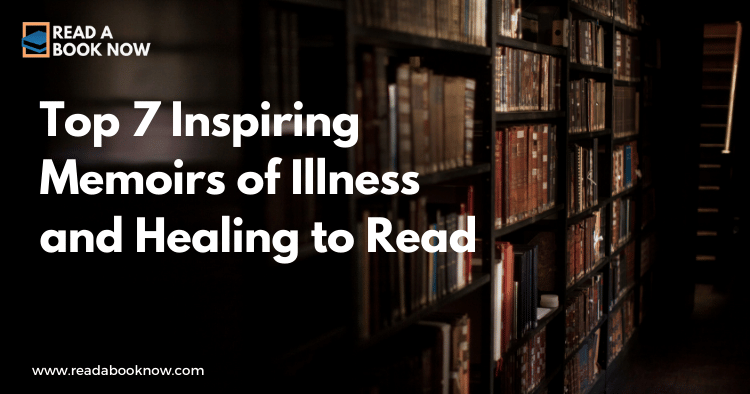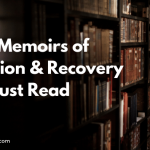Table of Contents
- Introduction
- 1. “When Breath Becomes Air” by Paul Kalanithi
- 2. “The Year of Magical Thinking” by Joan Didion
- 3. “The Immortal Life of Henrietta Lacks” by Rebecca Skloot
- 4. “A New Earth” by Eckhart Tolle
- 5. “Brain on Fire: My Month of Madness” by Susannah Cahalan
- 6. “Daring to Drive” by Manal al-Sharif
- 7. “The Light We Carry” by Michelle Obama
- Conclusion
- FAQs
Introduction
Life is an unpredictable journey, and while we often celebrate the highs, it’s the lows—our struggles with illness and the pursuit of healing—that often shape us the most. Memoirs about illness and healing not only offer us a glimpse into the lives of others but also provide comfort, understanding, and inspiration during our difficult times. In this blog, we’ll explore seven remarkable memoirs that delve into the complexities of illness and the resilience of the human spirit.
1. When Breath Becomes Air by Paul Kalanithi
In this poignant memoir, neurosurgeon Paul Kalanithi shares his journey from doctor to patient after being diagnosed with terminal lung cancer at the age of 36. The book navigates his internal conflicts as he grapples with life, death, and the meaning of existence. Kalanithi’s eloquent prose invites readers to reflect on their own mortality and the preciousness of life.
“Life is not about being a passive observer; it’s about engaging with our experiences, both good and bad.”
Why You Should Read It
- Insightful Perspective: Kalanithi’s dual role as a physician and patient provides a unique view of the healthcare system.
- Philosophical Depth: The book encourages readers to ponder the big questions about life and purpose.
For more insights on the impact of illness on personal growth, you can check out Harvard Health Publishing.
2. The Year of Magical Thinking by Joan Didion
Joan Didion’s memoir recounts the year following the sudden death of her husband, John Gregory Dunne, and the severe illness of their daughter, Quintana Roo. Didion explores the themes of grief, memory, and the fragility of life with raw honesty.
“Grief, when it comes, is nothing we expect it to be. It is a force of nature.”
Why You Should Read It
- Emotional Resonance: Didion’s exploration of grief is both heartfelt and relatable.
- Literary Excellence: This memoir showcases Didion’s masterful storytelling and lyrical prose.
Didion’s work has been praised by The New Yorker for its emotional depth and literary quality.
3. The Immortal Life of Henrietta Lacks by Rebecca Skloot
This compelling narrative tells the story of Henrietta Lacks, whose cancer cells were taken without her knowledge in 1951, leading to countless medical breakthroughs. Skloot intertwines Lacks’ legacy with issues of ethics, race, and the impact of medical research.
“Her cells have done more for medicine than any one person could ever hope to achieve.”
Why You Should Read It
- Educational Value: The memoir sheds light on important ethical questions in medicine.
- Cultural Reflection: It explores the intersection of race and science in America.
For more information about medical ethics, visit the American Medical Association.
4. A New Earth by Eckhart Tolle
While not a traditional memoir, Tolle’s work serves as a guide to spiritual awakening through personal transformation. He discusses the impact of ego and how embracing presence can lead to healing from emotional pain.
“Awakening is not a matter of becoming, but of letting go.”
Why You Should Read It
- Transformative Insights: Tolle’s teachings offer tools for overcoming personal struggles.
- Accessible Wisdom: The straightforward language makes complex ideas easy to understand.
To dive deeper into spiritual healing, check out Mindful.
5. Brain on Fire: My Month of Madness by Susannah Cahalan
Susannah Cahalan’s gripping memoir chronicles her battle with a rare autoimmune disease that caused a sudden onset of psychosis. Her journey from confusion to diagnosis highlights the importance of awareness and advocacy in mental health.
“Sometimes the brain can be a stranger to itself, but understanding it is the key to healing.”
Why You Should Read It
- Thrilling Narrative: The memoir reads like a medical mystery, keeping readers on the edge of their seats.
- Awareness Raising: Cahalan’s story sheds light on often-misunderstood neurological disorders.
For more on autoimmune diseases, visit the National Institute of Health.
6. Daring to Drive by Manal al-Sharif
In her memoir, Manal al-Sharif recounts her struggle against the Saudi Arabian driving ban on women. Through her story of activism and personal growth, she highlights the fight for women’s rights and empowerment.
“Freedom is not just a privilege; it’s a fundamental human right.”
Why You Should Read It
- Empowering Message: Al-Sharif’s story inspires those facing systemic challenges.
- Cultural Insight: The memoir provides a window into the complexities of modern Saudi society.
Learn more about women’s rights in the Middle East at Amnesty International.
7. The Light We Carry by Michelle Obama
In this uplifting memoir, former First Lady Michelle Obama shares her wisdom and experiences navigating personal and public challenges. Her reflections on resilience and hope are particularly inspiring in times of uncertainty.
“Your story is what you have, what you will always have. It is something to own.”
Why You Should Read It
- Relatable Stories: Obama’s tales of struggle and triumph resonate with many.
- Inspiring Leadership: Her insights encourage readers to find their own paths to healing.
For more inspiration and leadership resources, visit The White House.
Conclusion
These seven memoirs of illness and healing not only offer personal narratives of struggle and resilience but also serve as reminders that we are not alone in our experiences. Each story is unique, yet they collectively illuminate the profound human capacity for healing and growth.
Also Look For
If you’re interested in exploring literary works that delve into themes of resilience and personal growth, consider checking out classic literature that has shaped our understanding of the human experience. For instance, the impact of literature from various eras can provide additional context to the themes discussed in these memoirs. Explore the following links for deeper insights:
- Top 7 Ancient Classics Everyone Should Read Today
- 10 Timeless American Classics You Must Read Today
- 10 Must-Read Feminist Classics That Changed Literature
FAQs
1. What is a memoir?
A memoir is a literary work that recounts personal experiences and reflections, often focusing on specific themes or events in the author’s life.
2. How can reading memoirs help with healing?
Reading memoirs can provide comfort and validation, show that others have faced similar struggles, and offer insights into coping and resilience.
3. Are these memoirs suitable for all ages?
While many of these memoirs address complex themes, they can be suitable for older teens and




